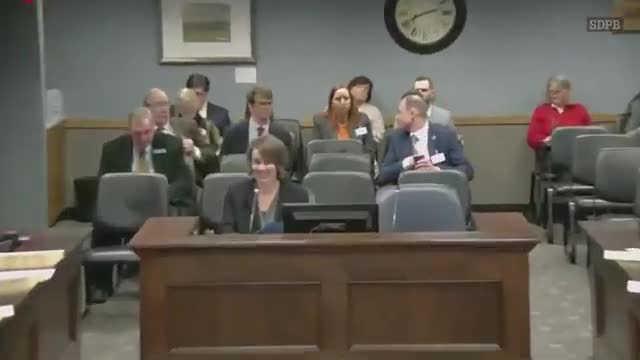Senate committee backs revenue-neutral shift to fund reemployment assistance operations
Get AI-powered insights, summaries, and transcripts
Subscribe
Summary
The Senate Appropriations Committee gave SB 26 a due-pass recommendation after testimony that the bill would lower employer unemployment taxes by $3 million while raising the program's administrative fee by the same amount to cover operating costs and protect federal FUTA credits.
The Senate Appropriations Committee voted to give Senate Bill 26 a due-pass recommendation after hearing that the measure would lower employer unemployment contribution revenue by $3 million while increasing an administrative fee by $3 million to keep the state's Reemployment Assistance program operating.
Marsha Holtman, with the Department of Labor and Regulation, told the committee SB 26 "lowers employer taxes ... by $3,000,000 while it increases the administrative fee charged to employers for the operations of the Unemployment Insurance Program by $3,000,000." She described the change as revenue neutral and said federal rules limit trust fund dollars to benefit payments, so administrative costs must be covered by the separate fee.
The bill would reduce employer contribution tables starting in 2026 and raise the administrative fee from $3 per employee to $12 per employee per year (an increase Holtman said translates to about $9 per employee annually for many businesses). Holtman testified the state trust fund is currently solvent at about $216 million but cannot be used for administrative costs, and she warned that without additional administrative revenue the department could need to cut roughly one-third of staff (from 76 to 51), which would impair benefit payment timeliness, appeals processing, fraud detection and federal compliance.
Business groups and trade associations testified in favor. Nathan Sanderson, executive director of the South Dakota Retailers Association, told the committee the measure is the only proposal this session that is net neutral to business and said paying the modest fee increase is preferable to risking loss of the FUTA credit, which could raise employer federal tax liabilities dramatically. David Owen of the South Dakota Chamber of Commerce called the bill "irritating, annoying and icky" but said the department has managed the program well and the change is necessary. Other proponents included the Associated General Contractors and the Society for Human Resource Managers of South Dakota.
Committee members asked how the fee change affects FUTA credits and whether the impact would fall disproportionately on small employers. Holtman explained the state retains FUTA credits by meeting solvency and federal performance metrics; she said the fee shift helps maintain staff levels and performance metrics that protect the state's FUTA credit. She also said the fee effect is spread across employers and that many small employers would see only a modest annual increase.
Senator Vilhauer moved adoption of the bill; Senator Howard seconded. The committee recorded nine yes votes and the bill was recommended to the floor with a due-pass.
Why it matters: supporters said the change protects the state's FUTA credit and avoids a much higher potential federal tax on employers, while opponents (none were recorded in committee) would need to point to alternatives to maintain operations without administrative-fee increases.
What comes next: SB 26 carries forward to the Senate floor with a due-pass recommendation.
